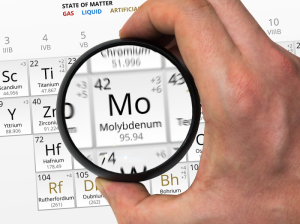by
Thomas Dworetzky, Contributing Reporter | December 21, 2017
Congress has again been urged to support greater MO-99 production by SNMMI and others in the nuclear medicine community.
The letters, sent to the relevant leadership of both houses, ask for additional funds. The Senate version ups the cap on each of the existing four cooperative agreements with partners from $25 million to $35 million, an additional $10 million per agreement in FY 2018, “and would be available retroactively to each partner, as long as the partner had contributed $35 million of its own funds,” according to the letters to the House and Senate.
That would bring the total to $67.4 million, and would include both the increase and the $27.4 million required to meet existing obligations.



Ad Statistics
Times Displayed: 280
Times Visited: 2 Fast-moving cardiac structures have a big impact on imaging. Fujifilm’s SCENARIA View premium performance CT brings solutions to address motion in Coronary CTA while delivering unique dose saving and workflow increasing benefits.
The letters, sent to the U.S. Senate and House chairs and ranking members of the respective subcommittees on energy and water development of the Committees on Appropriations, asked for the money “to secure a sufficient domestic supply of the medical isotope molybdenum-99 (Mo-99).”
“Most importantly, nuclear medicine allows physicians to better characterize the extent of disease in the body, informing more accurate treatments and better outcomes,” the letters stressed. “Through the use of Mo-99 we can detect heart disease and cancer earlier, saving millions of lives and billions of dollars each year. However, given there are no global suppliers in the Western Hemisphere, supply shortages could occur at any moment due to Mo-99’s short half-life. Therefore, the urgent need for a domestic solution as originally highlighted under AMIPA in 2012 remains unsolved.”
It was in that year that Congress passed the American Medical Isotope Production Act.
The domestic supply of Mo-99 is supported by the National Nuclear Security Administration (NNSA) at the Department of Energy (DOE), which now has four cooperative agreements with companies to produce the isotope in the U.S. using non-high-energy uranium.
In addition, research on alternatives for production (mainly using low-enriched uranium) has been costly and taken longer than expected.
For example,
as reported in May, SHINE Medical Technologies hit a money-raising snag, and now wants to build a prototype of its full-scale radioisotope-producing facility in Janesville, Wisconsin.
This could stall by three to six months the goal of commercial Molybdenum-99 production at SHINE's to-be-built $100 million, 57,000 square-foot main plant in Janesville, Wisconsin, most recently scheduled for mid-2019, until 2020.

